The Power Of Self-Reflection: A Guide To Personal Growth
Are you feeling stuck in your personal growth journey? Do you want to gain valuable insights into your emotions, core values, and personality traits? If so, self-reflection can help you in your quest for personal development. In today’s fast-paced world, it’s easy to get caught up in the busyness of life and lose sight of what truly matters. That’s why self-reflection is more relevant than ever. By taking regular time to reflect on our thoughts, feelings, and actions, we can gain a deeper connection with our inner selves and lead a more fulfilling life. In this guide to self-reflection, we’ll provide you with practical exercises, simple questions and alternative approaches to self-reflection to help you uncover your innate wisdom, identify your blind spots, and become a neutral observer of your thoughts and emotions. Are you ready to start your journey towards a more authentic life? Then let’s dive in!
What is Self-Reflection?
Self-reflection is a powerful tool that enables us to understand our thoughts, emotions, and behaviors. It involves taking a step back from our daily lives and actively looking at ourselves with a neutral perspective. Self-reflection allows us to gain valuable insight into our inner workings and notice patterns in our behaviour. Through this practice, we can identify our strengths, weaknesses, and areas for improvement, which leads to personal growth and development.
Benefits of Self-Reflection
Self-reflection is the process of taking time to look inward and examine one’s thoughts, emotions, and actions to gain a deeper understanding of oneself. This practice can have a range of benefits for personal growth and development, emotional intelligence, and overall well-being.
One of the key benefits of self-reflection is that it helps individuals gain valuable insight into their emotions, thoughts, and actions. By taking time to reflect, individuals can better understand the underlying causes of their emotions and behaviors. This understanding can lead to more conscious decision-making and greater control over one’s actions and reactions.
Self-reflection has also been linked to improved emotional intelligence. Emotional intelligence is the ability to recognize and manage one’s own emotions, as well as understand and relate to the emotions of others. By reflecting on their own emotions and experiences, individuals can develop a greater sense of self-awareness and empathy towards others.
Moreover, self-reflection can lead to personal growth and development. Regular self-reflection can reveal patterns in behavior or thinking that may be hindering personal growth. Recognizing and addressing these patterns can lead to positive changes in behavior and mindset.
Another benefit of self-reflection is the identification and understanding of core values. Core values are the guiding principles and beliefs that shape an individual’s behaviors and decisions. By reflecting on one’s experiences and actions, individuals can identify which values are most important to them and ensure that their behaviors align with these values. This process can lead to a deeper connection with oneself and a greater sense of fulfillment and purpose.
Understanding Your Core Values
One of the most important aspects of self-reflection is identifying and understanding your core values. Core values are the foundational beliefs and principles that guide an individual’s behavior and decision-making. By understanding your core values, you can empower yourself to make more meaningful choices that align with your beliefs and aspirations.
Core values can vary among individuals, but some of the most commonly recognized values include honesty, integrity, respect, compassion, and responsibility. These values are not only important in personal relationships but also vital in professional settings.
By aligning your daily choices and actions with your core values, you can lead a more fulfilling and authentic life. For example, if you place a high value on honesty, you can strive to be truthful in all of your interactions, even when it may be difficult or uncomfortable to do so. This can help establish trust in your relationships and lead to a greater sense of personal integrity.
Reflecting on your actions and experiences can help you identify your core values and ensure that your behaviors align with these values. Understanding your core values can also help you make more informed and thoughtful decisions, which can lead to a sense of empowerment and confidence in your life.
Exploring the Subconscious Mind Through Self-Reflection
The subconscious mind is a complex concept that has captivated psychologists and neuroscientists for decades. Often referred to as the part of our mind that operates without conscious awareness, the subconscious is responsible for many of our automatic thoughts, emotions, and behaviors.
In self-reflection practices, the subconscious mind can play a crucial role in uncovering key insights, patterns, and hidden traits that may be impacting personal growth. Through self-reflection, we can tap into our subconscious mind and explore the underlying beliefs, fears, and desires that may be driving our thoughts and behaviors.
One way to access the subconscious mind in self-reflection is to create a safe and quiet space where you can sit and observe your thoughts and emotions without judgment. This practice is known as mindfulness meditation and can help you tune into the present moment, regulate your emotions, and decrease stress and anxiety.
Another approach to exploring the subconscious mind is through visualization. This is a powerful technique that involves creating mental images of your goals, desires, and ideal self. By using visualization regularly, you can reprogram your subconscious mind and reinforce positive beliefs about yourself and your future.
Journaling is yet another tool that can help you uncover hidden traits and patterns within the subconscious mind. By regularly journaling about your thoughts, emotions, and experiences, you can gain clarity and insight into your inner world and identify areas for personal growth.
Some common traits that are often hidden within the subconscious mind include fear, self-doubt, limiting beliefs, and unresolved trauma. By exploring these traits in self-reflection, you can develop a deeper understanding of yourself and gain tools to overcome these obstacles to personal growth.
Developing Emotional Intelligence Through Self-Reflection
Emotional intelligence is the ability to perceive, understand, and manage our own emotions and the emotions of others. It is a crucial skill for personal and professional success, as it impacts our communication, relationships, and decision-making abilities. Fortunately, emotional intelligence can be developed through regular self-reflection.
One important aspect of developing emotional intelligence through self-reflection is identifying and processing both positive and negative emotions. Positive emotions, such as joy and gratitude, can help us build stronger connections with others and enhance our well-being. Negative emotions, such as anger and sadness, can be more challenging to manage, but they provide important information about our needs and boundaries. By acknowledging and understanding our emotions, we can develop greater emotional intelligence.
There are several self-reflection exercises that can be utilized to develop emotional intelligence. One example is the reflection triangle, which involves reflecting on our thoughts, emotions, and behaviors in a given situation. This exercise can help us identify patterns and triggers, and make intentional choices to manage our emotions and responses.
Simple questions like “What am I feeling right now?” and “What triggered this emotion?” can also be useful in developing emotional intelligence. By regularly checking in with ourselves and identifying our emotions, we can develop a greater awareness of our own needs and how to communicate them effectively to others.
In addition to improving personal emotional intelligence, self-reflection can also improve social skills, soft skills, and literacy skills. By understanding our own emotions and perspectives, we can develop greater empathy and understanding of others. We can also improve our communication and conflict resolution skills by understanding how our emotions impact our interactions with others.
Creating a Reflection Practice
We all experience moments of stress and uncertainty in our lives. Sometimes, the best way to overcome these challenges is to step back and reflect. Reflection is a powerful practice that helps us gain clarity about our thoughts, emotions, and behaviors, and guides us towards personal growth and development.
The key to developing a reflection practice is to set aside regular time for it. This could be as simple as scheduling 10 minutes at the end of each day, or dedicating an entire weekend to self-reflection. It’s important to find a time that works for you and to make it a priority in your schedule.
Once you have set aside regular time for self-reflection, there are various approaches that you can take. One approach is journaling, where you write down your thoughts and emotions on paper. This can be helpful in organizing your thoughts, tracking your progress, and identifying patterns. Another approach is meditation, where you sit in silence and focus on your breathing. This practice can help you calm your mind and gain a deeper understanding of yourself.
No matter the approach you choose, there are simple questions that you can ask yourself to start your reflection journey. Questions like “What do I want to achieve in the next year?” or “What values are important to me?” can help you identify your goals and values, and make conscious choices towards achieving them.
To take your reflection practice to the next level, you can utilize reflection triangles or alternative approaches to explore your thoughts and emotions from different angles. A reflection triangle involves reflecting on your thoughts, emotions, and behaviors in a given situation. This exercise can help you identify patterns and triggers, and make intentional choices to manage your emotions and responses. Alternatively, you can try alternative approaches like walking in nature, painting, or talking to a friend. These approaches can help you gain new perspectives and find creative solutions to your challenges.
As you engage in self-reflection, it’s important to be a neutral observer of your thoughts and emotions. Try not to judge yourself or your experiences. Instead, approach them with curiosity and openness. This will help you gain valuable insight into yourself and your life.
Finally, to make your reflection practice a daily habit, it’s important to stay consistent with it. Recognize that reflection is an ongoing process and that personal growth takes time. Be patient with yourself and celebrate small wins along the way.

Conclusion
In conclusion, self-reflection is a powerful practice that can guide us towards personal and professional growth. By setting aside regular time for self-reflection and utilizing various approaches like journaling, meditation, and reflection triangles, we can gain deeper insights into our thoughts, emotions, and behaviors. Developing the habit of self-reflection is a lifelong journey that requires consistency and patience. So, let’s take action and create our own self-reflection practice by asking ourselves simple questions like “What values are important to me?” or “What are my core strengths and weaknesses?” By doing so, we can continue to enhance our self-awareness and lead a more meaningful life.

